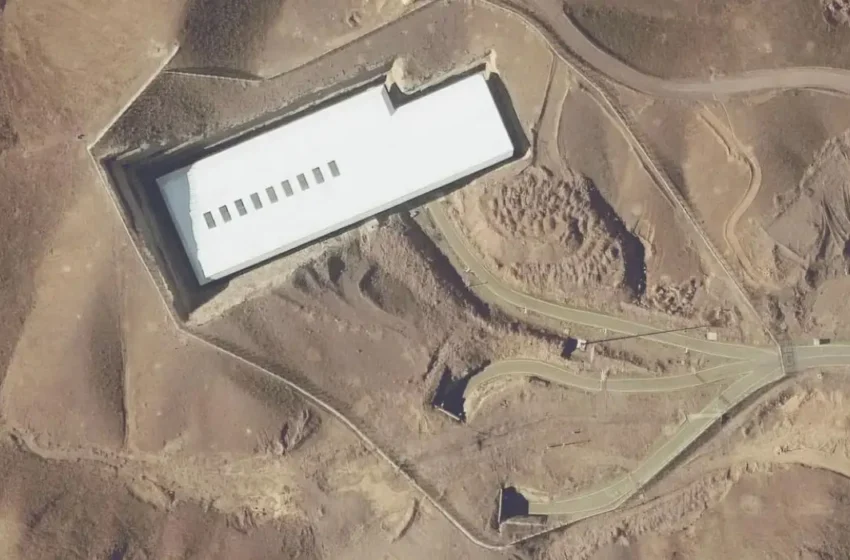
USA( Europe Brief News): A fragile ceasefire between Iran and Israel takes effect under U.S. President Trump’s pressure, easing tensions after the region’s most intense conflict yet.
After Trump chastised Iran and Israel for breaking a ceasefire he declared at 0500 GMT, both countries conveyed indications that the 12-day air war was over, at least for the time being.
Officials said that Ben Gurion Airport, Israel’s primary airport close to Tel Aviv, had reopened after the military removed restrictions on movement around the nation at 8 p.m. local time (1700 GMT). According to state-affiliated Nournews, Iran’s airspace would also be restored.
In what he described as a “great victory,” Iranian President Masoud Pezeshkian declared that his nation had won the war.
According to the official news agency IRNA, Pezeshkian reportedly informed Saudi Crown Prince Mohammed bin Salman that Tehran was prepared to settle disagreements with the US.
The brittleness of the truce between the two fierce enemies and the difficulty of establishing a durable peace between them were highlighted by the hours it took for Israel and Iran to admit they had agreed to the ceasefire and accuse one another of breaking it.
Trump chastised all parties, but he was particularly critical of Israel, warning the close friend of the United States to “calm down now.” Later, he claimed that Israel canceled additional attacks at his direction.
Israel Katz, Israel’s defense minister, claimed he assured Pete Hegseth, his U.S. counterpart, that his nation would uphold the ceasefire until Iran broke it. According to Iranian media, Pezeshkian also stated that Iran would respect the truce as long as Israel did.
Eyal Zamir, the chief of staff for Israel’s armed forces, stated that while a “significant chapter” of the war was completed, the war against Iran was still ongoing. He declared that the IDF would return its attention to its fight against Hamas militants in Gaza who are supported by Iran.
Additionally, Iran’s military leadership cautioned Israel and the US to take note of the “crushing blows” it dealt throughout the battle.
Iranian officials reported that Israeli strikes killed 610 people and injured 4,746 others in their nation. 28 Israelis were killed by Iran’s retaliatory assault, which was the first time that a significant number of Iranian missiles had breached Israel’s air defenses.
In a show of confidence spurred by the truce, which eased concerns about disruption to vital oil supplies, oil prices fell and financial markets rose globally.
Trump’s remarkable outburst earlier in the day, in which he dropped enormous bunker-buster bombs on Iran’s underground nuclear sites, scolded Israel with an obscenity. Trump had joined an ally’s air assault two days before.
Trump told reporters he was angry at both parties over the ceasefire violation before leaving the White House to travel to Europe for a NATO conference. He was especially angry at Israel, which he claimed had “unloaded” soon after accepting the agreement.
“I’ve got to get Israel to calm down now,”
Trump said. Iran and Israel had been fighting “so long and so hard that they don’t know what the fuck they’re doing.”
Three and a half hours after the ceasefire was supposed to start, Netanyahu’s administration admitted that Israel had targeted a radar installation close to Tehran in response to Iranian rockets.
“Who mediated or how it happened doesn’t matter. The war is over. It never should have started in the first place,”
said Reza Sharifi, 38, heading back to Tehran from Rasht on the Caspian Sea, where he had fled with his family.
Arik Daimant, a software engineer in Tel Aviv, said:
“Regrettably, it’s a bit too late for me and my family, because our house back here was totally destroyed in the recent bombings last Sunday. But as they say, ‘Better late than never’, and I hope this ceasefire is a new beginning.”
Speaking to reporters on board Air Force One heading to the NATO summit, Trump said he did not want to see Iran’s ruling system toppled.
“Regime change takes chaos and ideally we don’t want to see so much chaos,”
he said.
Trump mediated the ceasefire agreement with Netanyahu, according to a senior White House official, while other administration officials communicated with the Iranians. An official briefed on the negotiations told Reuters on Tuesday that Qatar’s prime minister, Sheikh Mohammed bin Abdulrahman Al Thani, had obtained Tehran’s approval during a call with Iranian officials.
In the greatest blow to the Islamic Republic since the war with Iraq in the 1980s, Israel launched a surprise air battle on June 13 that killed top military commanders and struck Iranian nuclear sites where it said Iran was attempting to construct an atomic bomb.
Iran denies attempting to develop nuclear weapons and claims that its uranium enrichment program is for peaceful purposes.
What are the key factors influencing Iran’s response to the ceasefire?
Iran sees the American bombings on its nuclear sites as a serious transgression and feels compelled to retaliate in what it sees as justifiable self-defense. Iranian officials have underlined their right to a proportionate response, which influences their readiness to engage or remain silent in response to Israel’s activities.
Beyond direct conflict, Iran still has a number of strategic options, such as asymmetric strategies like cyberattacks, terrorism, and the mobilization of proxy groups in Yemen, Syria, and Iraq. If the ceasefire fails, these proxies, which have historically targeted Israeli and American interests, could be activated.
Iran has promised to retaliate economically, most notably by closing or interfering with the Strait of Hormuz, a vital international oil transport route.


